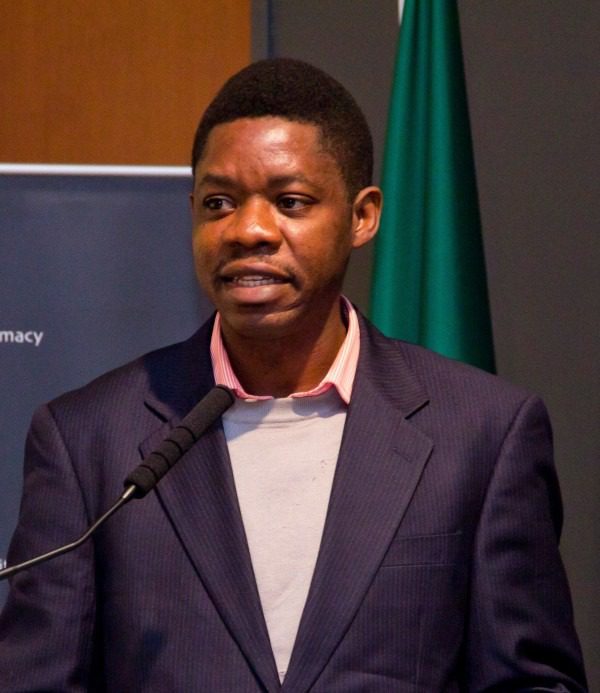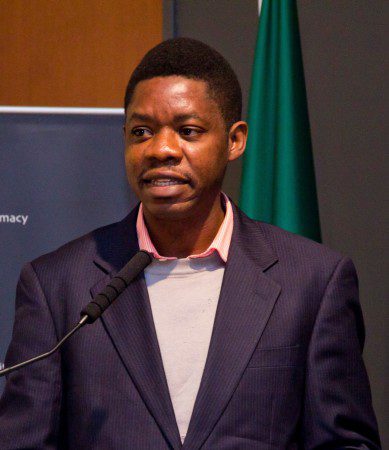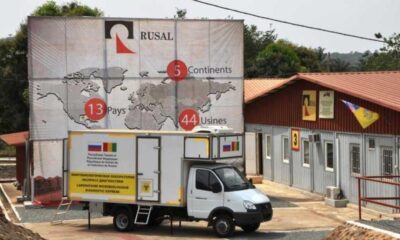Economic Issues
Naira Rain? Which One Exactly? -By Simbo Olorunfemi

…when we speak of Naira rain, which one exactly? The one packaged as bailout to well-heeled elements in the private sector, the one trillion Naira import duty waived in favour of importers of rice and items? Could it be the tonnes of Naira pocketed by phantom fuel importers, who collect subsidy payments, yet electing not to pay back loans extracted from colluding and greedy banks?
Naira rain, some have called it. But is it, really, a Naira rain? Is it unusual? Indeed, there is nothing out-of-the-world about the Presidential Relief Package to enable state governments pay arrears of workers’ salaries. Bailout, from what we have seen of it, is an intervention instrument often employed to midwife recovery in sectors of capitalist economies, irrespective of the pretence to be running market-driven economies.
Nigeria is no exception. Indeed, the Naira rain has been on, for years. The difference, this time around, is that rather than filling the buckets of the private sector, this Presidential Relief Package, for once, is for the benefit of the public sector.
Beyond the newspaper headlines, a good look at the package reveals that the bulk of the funds released actually belongs to all the tiers of government, and not just the federal government. Even though the presidency has now clarified that what is being shared among the tiers of government is the $2.1 billion dividend paid into the Federation Account by the Nigeria Liquefied Natural Gas Company (NLNG), nothing would have been wrong, stricto sensu, in sharing the 2 billion dollars in the illegal Excess Crude Account. The fund there statutorily belongs to the federation and not the just the federal government.
It is well documented that a number of the state governments actually overreached themselves by entering into all forms of bonds with irrevocable first-line charge on allocation from the Federation Account.
The fact that the previous administration had in place what looked more like a monarchical structure, with a all-knowing Queen at the top absolutely calling the shots on how the economy is managed and dispensing favours in accordance with dictates unfamiliar to lesser beings, does not make such an arrangement one that has to be followed.
The magisterial tone of the Queen was rather obvious, as she admonished governors for not buying into her scheme to set aside money, ostensibly to fund the controversial Sovereign Wealth Fund. But the questions that never seemed to have received answers include these – What stopped the Coordinating Minister of the Economy from setting up such a fund for the federal government, which pockets over 50 percent of the revenue accruable into the federation account? What was wrong with the Coordinating Minister and the federal government setting up a fund of its own, with all that came in from the unprecedented high price of crude oil? It was long suspected that what was routinely declared as due to the Federation Account, under the previous regime, fell short of what was statutorily expected to be paid into it, yet the federal government could not set aside a reserve fund. Rivers State government, for instance, did not receive any prompting from the Queen before setting up its own reserve.
It is well documented that a number of the state governments actually overreached themselves by entering into all forms of bonds with irrevocable first-line charge on allocation from the Federation Account. The fact is that some of these governments actually did right by seeking to fund long term projects with long-term funds. It cannot simply be that governments elected to drive development would simply fold hands, in the face of the paucity of funds, to affect its stead. It cannot be that government exists simply to be able to pay salaries of its workers. That projections have fallen short spectacularly for some of them might mean that they over-reached themselves, but these projections were themselves products of professional computations, subjected to what was supposed to be rigorous checks by regulators and operators in the money and capital markets. The point, simply put, is that we are faced with a k-legged political structure, poorly managed by deficient thinking on the part of those entrusted with governance in the past and regulated by defective institutions, all around, porous in corporate governance.
What we are faced with is beyond a mismatch in projection and exposure. We have state and local governments that exist simply to pay salaries, many unable to even meet up. We have a federal government that has had to fund its budget, including payment of its workers, through borrowing. Yet the wizards who managed the economy have never been shy with doling out free funds, in the name of bailout packages. There was the 300 billion Naira Power and Aviation Intervention Fund in 2012. There was the 22.6 billion Naira forbearance package for stockbrokers. We had the Asset Management Company of Nigeria (AMCON) buying so-called bad loans off the books of our banks, shelling out another One trillion Naira from our commonwealth in the process. There was the 213 billion Naira to the privately-owned Distribution Companies (DISCOs) and Generation Companies (GENCOS), in the name of sorting out the mess in the power sector. We have the 1.4 trillion naira generously granted as import duty waivers to private sector operators, in our moment of madness. Some of that money waived off, lest we forget, ought to be to the credit of the federation account.
It cannot be that it is simply okay to bail out banks, bail out privately-owned companies and not be able to bail out state governments to enable them pay thousands of workers, kept on the payroll of some of these states for reasons more to do with the overall social welfare of the citizenry. This path might not be the sustainable one to take, in the long run, but a decision on that will be better taken when the question of the skewed structure pretending to be federal is up for consideration.
So when we speak of Naira rain, which one exactly? The one packaged as bailout to well-heeled elements in the private sector, the one trillion Naira import duty waived in favour of importers of rice and items? Could it be the tonnes of Naira pocketed by phantom fuel importers, who collect subsidy payments, yet electing not to pay back loans extracted from colluding and greedy banks?
What has been put together for state governments, we are told, is “a Central Bank of Nigeria (CBN)-packaged special intervention fund that would offer financing to the states, ranging from between N250 billion and N300 billion. This would be in the form of soft loans available to states to access, for the purposes of solely paying the backlog of salaries and a debt relief programme, designed by the Debt Management Office (DMO), which will help states restructure their commercial loans currently put at over N660 billion and extend the life span of such, while reducing their debt servicing expenditures.”
This one appears more like a package configured with long-term repayment in mind, and not a gift from Santa Claus, like the bailout packaged for the private sector, in our very recent past. So bad was it that a beneficiary of the aviation bailout, allegedly, simply shipped the money abroad to add another toy to his questionable acquisitions. Such was the nature of the Naira rain. It cannot be that it is simply okay to bail out banks, bail out privately-owned companies and not be able to bail out state governments to enable them pay thousands of workers, kept on the payroll of some of these states for reasons more to do with the overall social welfare of the citizenry. This path might not be the sustainable one to take, in the long run, but a decision on that will be better taken when the question of the skewed structure pretending to be federal is up for consideration.
It is definitely not sustainable to keep reaching for the bottom of the pocket to clear backlog of salaries owed workers. But it is also not sustainable for banks to keep pushing deposits, held in trust, into the hands of some oligarchs who enjoy a preferential access to credit, at the detriment of small businesses and operators in the informal economy, only to have government coming over to clear the mess left behind, when the banks run into a ditch, under the weight of non-performing loans, configured not to perform by lender and borrower, in the first place.
Bailouts should not be the exclusive preserve of Bankers, Stockbrokers and other Oligarchs, the poet around the corner needs one too.
Simbo Olorunfemi in the Nigerian Communications Consultancy.

















